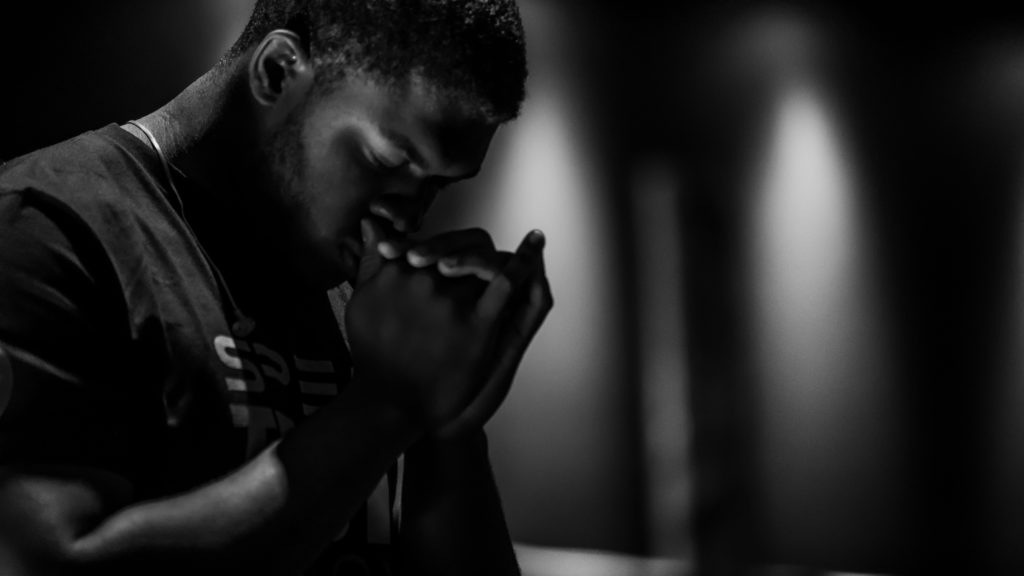
For the past few weeks, we’ve been looking at different topics in Proverbs. We talked about our words (“How to Use Your Words Wisely“), work (“How to Work Wisely“), and wisdom vs. folly and righteousness vs. wickedness (“Wisdom for Everyday Christian Life“). Today we’ll be looking at another important topic introduced in Proverbs 10:27-30: the fear of the Lord.
Do We Still Fear the Lord?
The fear of the Lord prolongs life, but the years of the wicked will be short.
– v. 27
The fear of the Lord is reverent, respectful awe toward Him. It’s not the terror of an abusive father, but an awe for His power and glory. And, if we’re honest, even in the church we struggle with this. Maybe we don’t disrespect the Lord outright – but we’re more often tempted to just disregard Him. We fall into the error of taking Him, His Word, sin and the church lightly. All these things are symptoms of a lack of proper fear of the Lord.
Why do we struggle with the fear of the Lord? One reason is that we know God through grace. Our relationship with Him is based on mercy and forgiveness, and so we sometimes forget the reverence and awe, taking God for granted.
In the New Testament, the fear of the Lord is still a factor (see Luke 12:5; Acts 9:32; 19:17; 2 Corinthians 5:11; Hebrews 10:31; 1 Peter 3:15). So yes, we’re welcomed into this relationship through grace and love. However, we still need to respect Him with reverent awe.
Do we still believe that God is fearsomely powerful and holy? Do we still believe that He has the authority to cast the wicked into hell? That His Holy Spirit is still building His supernatural church? That He does extraordinary things? These are fearsome, glorious realities that aught to humble us.
Fear: The Starting Place for Our Relationship with God
If you look for blogs and books about the church, you’ll find a lot that has to do with techniques for church health. But you won’t find much about reverence and respect for God. It’s almost like the Lord is irrelevant to what we’re trying to do.
As Christians, we’re dealing with the living God. We can be comfortable, loving and welcoming, but have we emphasized welcoming over worshiping? When visitors enter, do we just give them hugs and food and leave it at that?
We want to give people the living God. And that may not feel very welcoming at first.
When someone meets God for the first time, it should feel the way Isaiah felt in Isaiah 6:5, like Job did in Job 42:5-6 and like Peter in Luke 5:8. Proverbs teaches that fearing the Lord is the starting place. People often skip this step, though, and so they think they’re good people who just need a bit of religious meaning and morality booster shots. They don’t realize that what they really need is salvation from damnation because God is utterly holy.
Implications for Fearing the Lord
The fear of the Lord has implications. In verse 27, it says that it “prolongs life.” Not only is this a principle for life now, but it’s also a promise for the eternal life to come. Those who reject the Lord do not receive eternal life, but those who fear Him do.
The fear of the Lord also applies to our hopes and dreams.
The hope of the righteous brings joy, but the expectation of the wicked will perish.
– v. 28
Righteous people see themselves as sinful and deserving of death. But they know that Christ died for them so that they can receive abundant and eternal life. This hope brings joy. On the other hand, the wicked don’t acknowledge God and so make up their own expectations for life. However, these expectations will perish.
Scripture presents one reality, and people either align their lives with it or try to fight it. This reality is called the “way of the Lord” in verse 29:
The way of the Lord is a stronghold to the blameless, but destruction to evildoers.
Culture says there as many right ways to live your life as there are people. But that’s not true. God’s way is the only correct way to live, and for those who align with it, it is a source of peace. For those who reject it, it is destruction.
In the old covenant, living God’s way meant you would “never be removed” from the Promised Land (v. 30). In the new covenant, it’s not about the Promised Land but the coming eternal kingdom. The righteous will never be removed because they fear God and put their hope in Christ. But the wicked reject God’s ways, and so “will not dwell in the land.”
What It Means for Us
Our God is not a small god. He isn’t a faulty product in need of better marketing so that we can get people to church. When we try to come up with strategies to bring people in, it inevitably falls through. But when the Lord calls someone to Himself through Christ, there’s no stopping it.
This isn’t a matter of participating in church or sitting out – it’s a matter of life and death. You either fear the Lord or reject Him. What we’re after as a church is supernatural and will only come about through Him. If there is any hope for sinners to be saved, it’s because God is going to do it.
So let’s ask the Lord to convict us of any areas where we are rejecting Him or taking Him lightly. Let’s confess any unrepentant sin and be united in humility before our awesome God. Let’s also not try to be superheroes or pull anything off on our own – let’s take it to Him in prayer.
Discussion Starters
- What does it mean to fear the Lord?
- How are you tempted to reject/disregard God?
- Why is it important to fear the Lord?
- What implications does the fear of the Lord carry?





